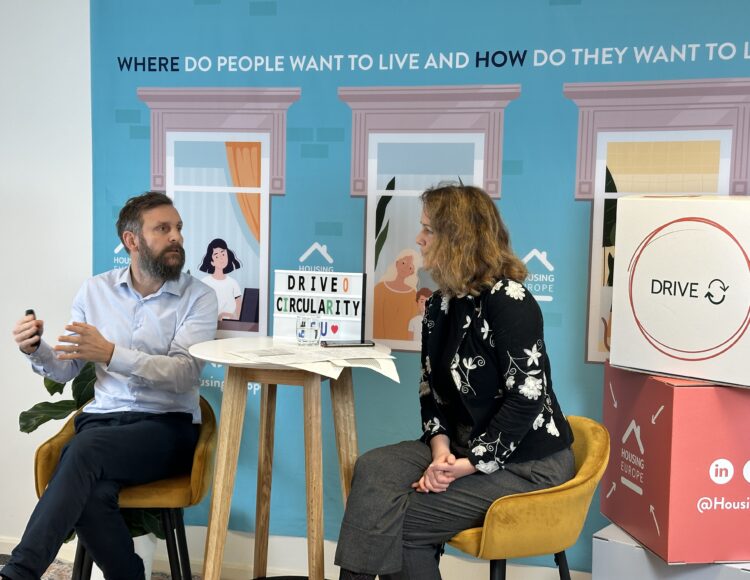For the second episode from the 30th of November, the focus was on how to reduce carbon footprint without reducing the delivery of social and affordable homes.
The discussion started from the example of the Drive 0 project, whose aim is to offer efficient renovation solutions concerning energy, materials and costs, with innovative consumer-centred circular renovation processes.
Kate Joyce from Tuath Housing Ireland presented an example of converting office spaces into social housing, the result in dwellings 86 units for over 200 residents in Parkwest Plaza, situated in a business park outside Dublin, but well connected in terms of public transportation. Social amenities were added as part of urban redesign project, and the local economic activity increased again after years of inactivity. In order to commit to more such renovation projects, it is essential to understand the added benefits. Through carbon assessments of the whole lifecycle, especially when comparing to new built or demolition, it is possible to understand the added benefits and obtain the necessary resources for more such projects.
Carine Puyol from L’Union Sociale pour l’Habitat developed on how to reduce carbon footprint print in the social housing sector while being able to deliver more homes in France through renovation and circularity. How can people live in very dense spaces? By improving quality of life, presenting the project as an opportunity to develop public services such as kindergartens or green spaces. An example of a tool to support social housing providers is PIREE, a national-level platform for re-used materials.
Josefina Lindblom-DG ENV and the European Commission was open to continue the conversation: What drives theses examples and projects? What actors were involved? What were the main challenges and what solutions would help.
From Public Housing Sweden we heard that a good database is necessary as constructors know the needs. From 2025 there will be a max threshold for the emissions in the production phase, as there is a shift from how much primary energy is used to the CO2 impact of the lifecycle. Another important point was made by Fernando Sigchos, European Builders Confederation, who underlined that people from the sector need to know if there will be stability, if the costs will allow the innovative techniques on circularity to become mainstream.
Sorcha Edwards highlighted that the examples from the social housing sector are heralding a new phase of de-materialisation whereby we get maximum value out of existing materials and buildings while generating value for society providing more affordable homes and increasing quality of life. This is the direction she said that Housing Europe would like to see the work to reach carbon targets at EU level should take.
Missed the event?
Rewatch it here.
If you want to further participate in the innovative renovation discussion, we invite you to join the ‘Renovate together forum’ on LinkedIn
